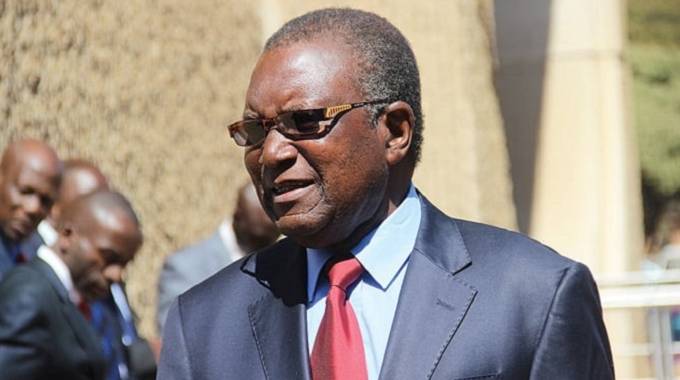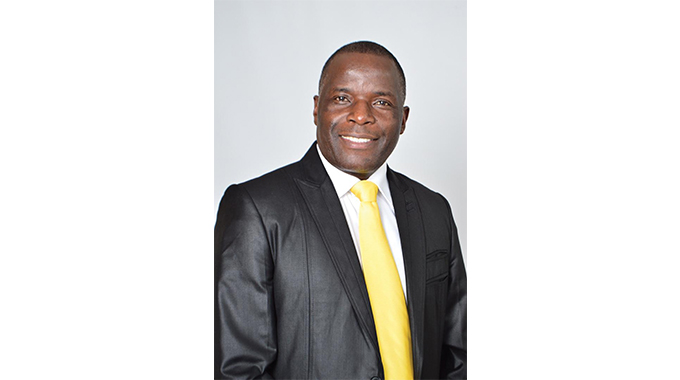‘Broadening education NDS1 priority’

Sukulwenkosi Dube-Matutum, Chronicle Reporter
THE Government has lined up programmes aimed at improving infrastructure in schools under the National Development Strategy 1 (NDS1), a Cabinet Minister has said.
Speaking during the recent tour of Vulindlela Primary School in the Hlalani Kuhle area in Cowdray Park, Bulawayo, the Minister of State for Presidential Affairs and Monitoring, Implementation of Government Programmes, Dr Joram Gumbo said the Second Republic has brought a new philosophy in the implementation of Government projects that are key drivers in the attainment of Vision 2030.
He said the Ministry of Primary and Secondary Education will come up with a budget for the school infrastructure projects and Government, working in partnership with various stakeholders, will finance the projects.
“It’s a fact that without developing the basic of education then we are not developing as a nation. As such the building of primary schools where our children start is imperative.
“I’m happy to report that during the National Development Strategy 1 period Government will give additional attention to broadening access and participation to education by marginalised populations in both rural and urban areas. Government will therefore embark on deliberate programmes aimed at accelerating infrastructure development and rehabilitation in schools.
“The Ministry of Primary and Secondary Education will provide a nationwide budget for constructing schools.
“It’s important that private companies, local authorities, communities as well as other stakeholders come together to ensure that they complement whatever Government allocates towards construction of schools,” he said.
Dr Gumbo said disbursements of the funds will be done in phases under the 100-day plan cycle programme.
He said Government has a special responsibility towards provision of basic education.
Dr Gumbo said the construction of Vulindlela Primary School through devolution funds resonates with Government’s thrust to address infrastructure challenges in the education sector.
“The expectation of Government is that projects shouldn’t be implemented to eternity but within stipulated time frames.
“The rapid results approach will therefore continue to be used as a tool to ensure that projects are implemented timeously.
“It is envisaged that this approach will assist in attaining our goal of an Upper Middle-Income Economy by 2030.
“You may have noticed that in recent times it has become fashionable in some sections of our body politic to belittle the achievements of the Second Republic. Some have sought to dismiss the whole period since the establishment of the Second Republic as a mournful phase in our development.
“There is no doubt that the Second Republic has brought many benefits across all sectors of the economy especially through projects implemented under the 100-day cycle,” he said.
BCC Director for Housing and Community Services, Mr Dictor Khumalo said construction of Vulindlela Primary School started in October 2019 and $4 million had been used so far.
He said the funds had been used to construct two classroom blocks, caretaker’s house, toilet block and septic tank.
Mr Khumalo said the project had been undertaken using devolution funds and council levy collection from various schools.
He said outstanding works were valued at $83 million.
“Outstanding works include an administration block, seven by three classroom blocks, two ECD blocks, furniture, sports field, electrification of the school, sewer reticulation among others.
“In progress is the construction of four classroom blocks.
“Major challenges include lack of capital, poor roads, no electricity in the surrounding area, inadequate teaching and learning materials among others,” he said.
Bulawayo Provincial Education Director, Mrs Olicah Kaira said some learners were walking more than 10 kilometres to reach schools. She said some schools had far exceeded their carrying capacity.
Mrs Kaira said Vulindlela Primary School had enrolled learners from ECD to Grade Four but there was need for the school to enroll other grades as learners from the area were in desperate need for learning space.
She said Vulindlela Primary School will help to decongest other schools within Cowdray Park.
According to statistics from the Zimbabwe Education Analysis 2016-2020 report by the Ministry of Primary and Secondary Education with support from the United Nations Children’s Emergency Fund (Unicef), approximately 20 percent of the school age population — 3 to 18 years — is out of school in Zimbabwe and the country needs more than 4 500 new schools to provide quality education.
The schools that are already established need an additional 45 000 classrooms for learners to access studies in a conducive manner.
The statistics show that teachers, especially in rural areas need 55 000 houses for accommodation. — @DubeMatutu












Comments